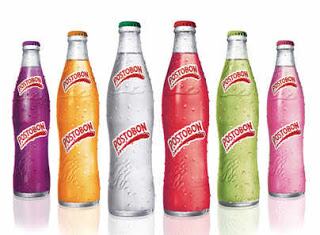Using data from the 2006–2007 Colombian Income and Expenditure survey, scientists from University of North Carolina, Chapel Hill (USA), Universidad Nacional (Bogotá), and Universidad de Los Andes (Bogotá), estimated that the 20% tax would reduce consumption of sugary drinks by roughly 1,197 million liters, or 32%.
The revenue raised would be US$480 million by 2020.
Writing in PLoS ONE, the researchers stated: “A new paradigm involving healthier diets requires a large number of changes, including ultimately shifts in the culture of eating, a reduction of marketing of unhealthy foods and beverages, front-of-package labeling of either healthy or unhealthy foods and beverages, and shifts in the relative prices to encourage significant changes toward healthier food purchases. The design of a meaningful [sugar-sweetened beverages] tax to enhance the overall effect into a healthier Colombian diet is an important step forward
The study may reignite discussions in the country, after a proposal for a 20% tax on sugar sweetened beverages was killed on the last day of 2016 after being dropped from a larger tax overhaul package (for full details, read this New York Times article).
The authors of the new study continued: “Recently, a tax reform package has been introduced in Colombia, which includes approximately an 18% tax on [sugar-sweetened beverages], which was debated in the congress but rejected in early-2017. There may be future efforts to reconsider this, and if such a tax is implemented, rigorous careful evaluation is needed to understand if it is able to lower the consumption of unhealthy sugary beverages.”
A move towards healthier diets
Commenting on the study, Barry Popkin, PhD, Professor in the Department of Nutrition at UNC and co-author on the study, stated: “In addition, our estimates showed that, following the tax, consumers likely would purchase grains, dairy-based products, and fruits and vegetables in place of sugary drinks. This represents a move toward healthier food choices.”
“Low-income households were predicted to decrease their purchases of sugary drinks more than mid- and high-income households, which forecasts greater health benefits for lower-income Colombians.”
Child obesity rates

Researchers from the Centro de Estudios en Medición de la Actividad Física (CEMA) at the Universidad del Rosario (Bogotá) reported that soda consumption was associated with a higher prevalence of abdominal obesity in schoolchildren and adolescents (aged 9 to 18) in Bogotá.
The overall obesity rate in Colombia has been steadily climbing and has reportedly tripled since 1980, with almost 20% of adults now obese in the country. The fastest growth has reportedly occurred in children and adolescents.
Data from a study with 8,136 children and adolescents (aged 9 to 18) published last year in Nutrición Hospitalaria showed that 71% of boys claimed to consume “regular soda” every week, followed by “concentrated juices” (64%).
“In both genders, the prevalence of abdominal obesity was higher in schoolchildren that responded to intake “regular soda” (23.3%), “concentrated juices” (13.2%) and “drink tea” daily (9.7%),” wrote the researchers.
In addition, there was a link between daily intake of “regular soda” and children and adolescents of parents with low educational level and nutritional status.
“We recommended comprehensive interventions which are involved nutritional and educational component among children and adolescents from Bogotá, Colombia.”
Taxes on sugar-sweetened beverages
Numerous countries around the world are exploring the idea or have imposed taxes on the consumption of sugar-sweetened beverages.
Other LatAm countries that have imposed taxes on sugary beverages include Mexico, Chile, Barbados and Dominica. In Mexico, which introduced a 1 peso per liter soda tax in 2014, an analysis published in Health Affairs in March 2017 found that the 5.5% drop in the first year after the tax was introduced was followed by a 9.7% decline in the second year.
Chile imposed a tax on sugary beverages in September 2014 and reduced the tax for non-sugary beverages, while Barbados and Dominica levied a 10% excise tax on sugar-sweetened beverages in 2015.
Sources
Published online, doi: 10.1371/journal.pone.0189026
“Sugary drinks taxation, projected consumption and fiscal revenues in Colombia: Evidence from a QUAIDS model”
Authors: J.C. Caro, et al.
2017, Volume 34, Number 2, Pages 422-430. doi: 10.20960/nh.250
“Prevalence and associated factors of sugar-sweetened beverages intake among schoolchildren aged 9 to 17 years from Bogotá, Colombia: the FUPRECOL Study” (Article in Spanish)
Authors: R. Ramírez-Vélez

